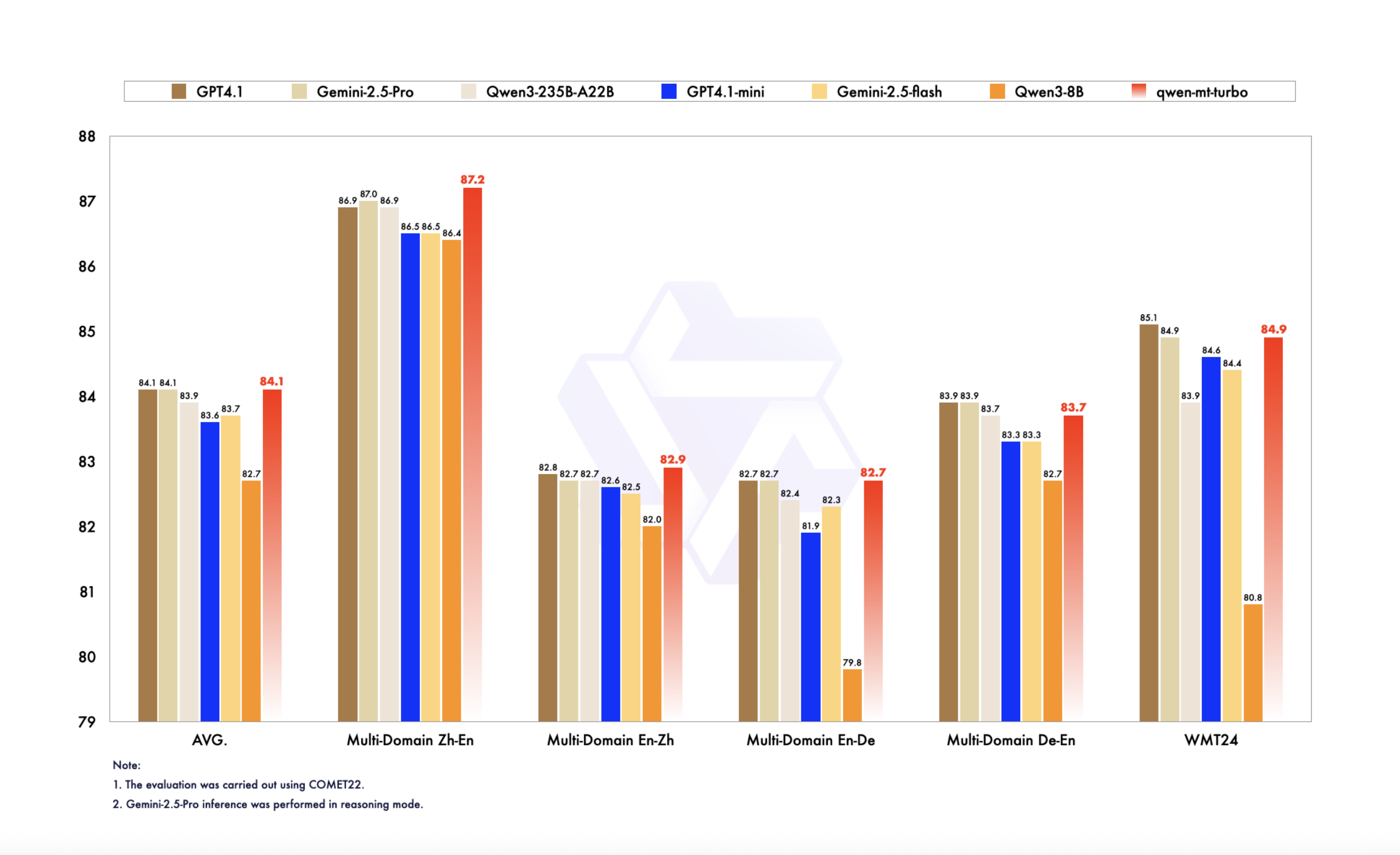
Alibaba Unveils Qwen3-MT: A Revolutionary Leap in Multilingual Machine Translation
Alibaba has launched its latest and most advanced machine translation model, Qwen3-MT (qwen-mt-turbo), through the Qwen API. This cutting-edge technology aims to eliminate language barriers by providing unprecedented accuracy, speed, and flexibility in translation services.
Key Features of Qwen3-MT
- Multilingual Support: Qwen3-MT is capable of translating over 92 languages, effectively covering more than 95% of the global population.
- Advanced Model Architecture: Built on Alibaba’s sophisticated Qwen3 transformer architecture, Qwen3-MT incorporates a lightweight Mixture-of-Experts (MoE) backbone. This design optimizes the balance between computational efficiency and deep contextual understanding.
- Extensive Training Data: The model has been trained on trillions of multilingual tokens, encompassing a diverse range of languages, domains, and registers. This includes everything from formal legal texts to casual dialogue.
- Cost and Latency Efficiency: Qwen3-MT promises top-tier translation quality at a fraction of the cost and latency typically associated with traditional translation systems.
According to Asif Razzaq from MarkTechPost, Qwen3-MT leverages reinforcement learning, allowing it to continuously improve its translation accuracy and efficiency. The model's rich customization options further enhance its usability, making it a powerful tool for businesses and individuals alike.
As the demand for accurate and rapid translation grows in our interconnected world, Alibaba’s Qwen3-MT stands out as a significant advancement in the field of artificial intelligence and machine learning. This innovation not only facilitates better communication across cultures but also opens new avenues for international business and collaboration.
Rocket Commentary
The launch of Alibaba's Qwen3-MT marks a significant step forward in machine translation, showcasing the potential for AI to bridge communication gaps across diverse languages. However, as we herald this technological advancement, it is vital to scrutinize the implications of such powerful tools. The promise of 92 languages and advanced contextual understanding can indeed enhance global business operations and foster inclusivity. Yet, we must remain vigilant about the ethical dimensions of AI deployment. Ensuring that these technologies are accessible, transparent, and free from bias is crucial in realizing their transformative potential. As Alibaba positions itself at the forefront of AI innovation, the industry must collectively prioritize responsible development to harness the full benefits of machine translation for all users, especially in underserved markets.
Read the Original Article
This summary was created from the original article. Click below to read the full story from the source.
Read Original Article